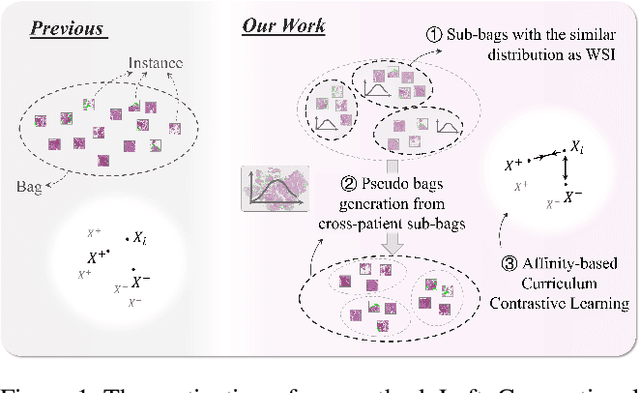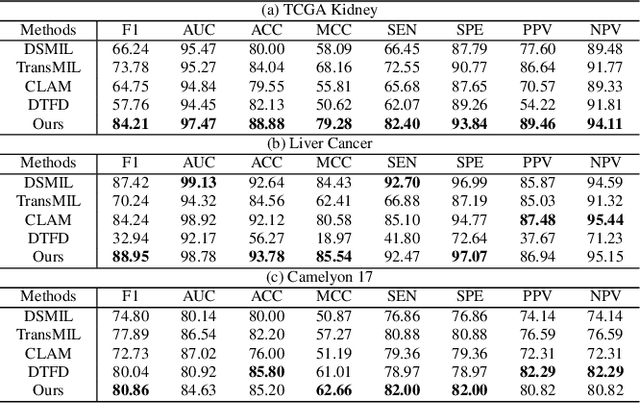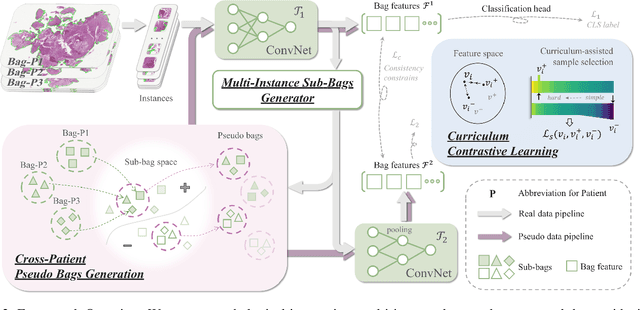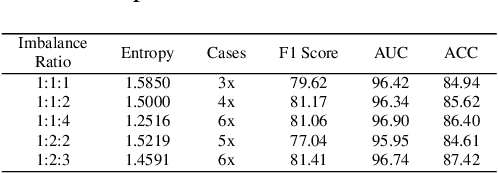Cross-Patient Pseudo Bags Generation and Curriculum Contrastive Learning for Imbalanced Multiclassification of Whole Slide Image
Paper and Code
Nov 18, 2024



Pathology computing has dramatically improved pathologists' workflow and diagnostic decision-making processes. Although computer-aided diagnostic systems have shown considerable value in whole slide image (WSI) analysis, the problem of multi-classification under sample imbalance remains an intractable challenge. To address this, we propose learning fine-grained information by generating sub-bags with feature distributions similar to the original WSIs. Additionally, we utilize a pseudo-bag generation algorithm to further leverage the abundant and redundant information in WSIs, allowing efficient training in unbalanced-sample multi-classification tasks. Furthermore, we introduce an affinity-based sample selection and curriculum contrastive learning strategy to enhance the stability of model representation learning. Unlike previous approaches, our framework transitions from learning bag-level representations to understanding and exploiting the feature distribution of multi-instance bags. Our method demonstrates significant performance improvements on three datasets, including tumor classification and lymph node metastasis. On average, it achieves a 4.39-point improvement in F1 score compared to the second-best method across the three tasks, underscoring its superior performance.
 Add to Chrome
Add to Chrome Add to Firefox
Add to Firefox Add to Edge
Add to Edge